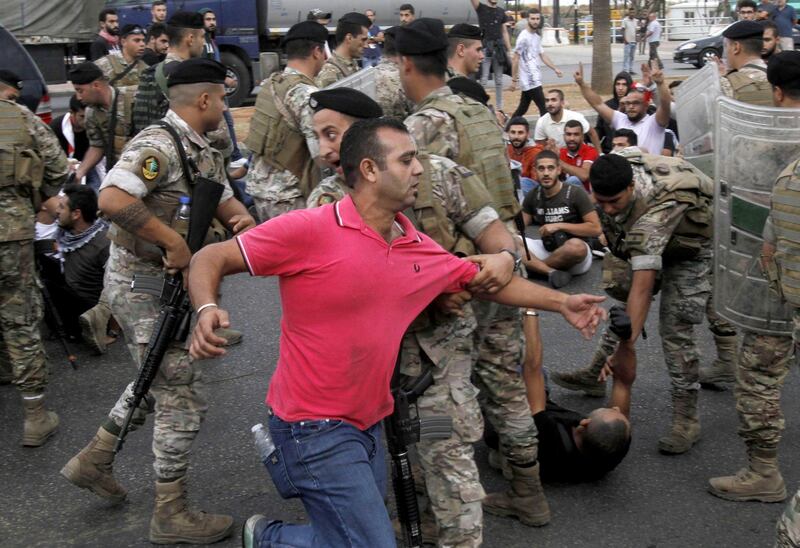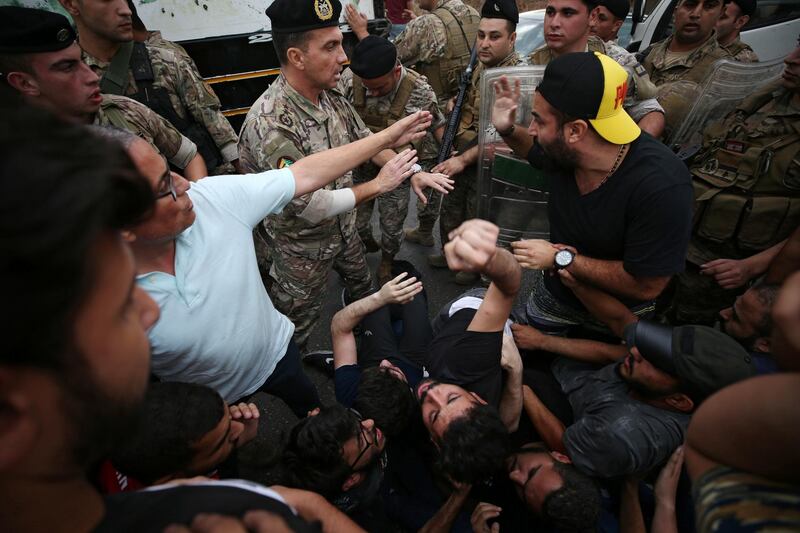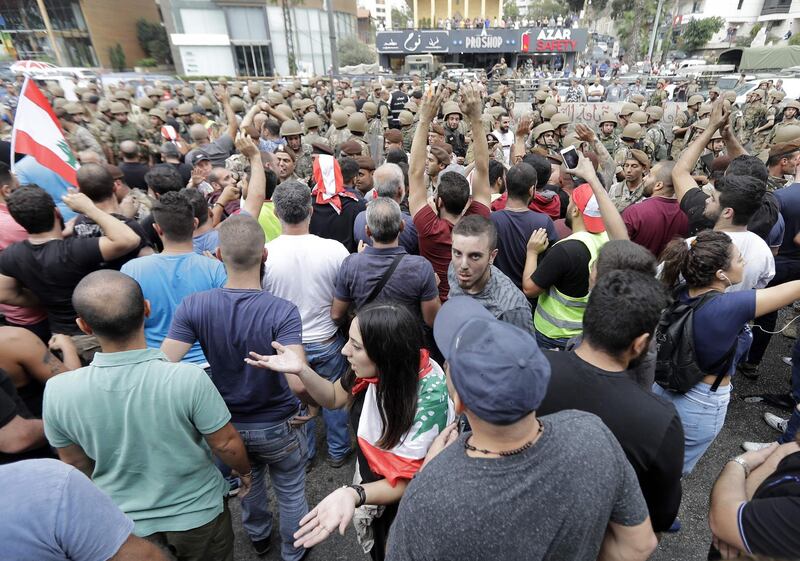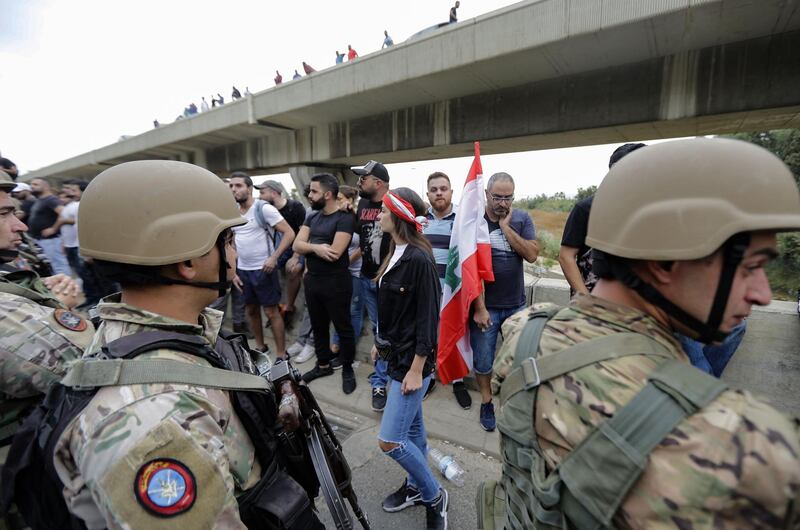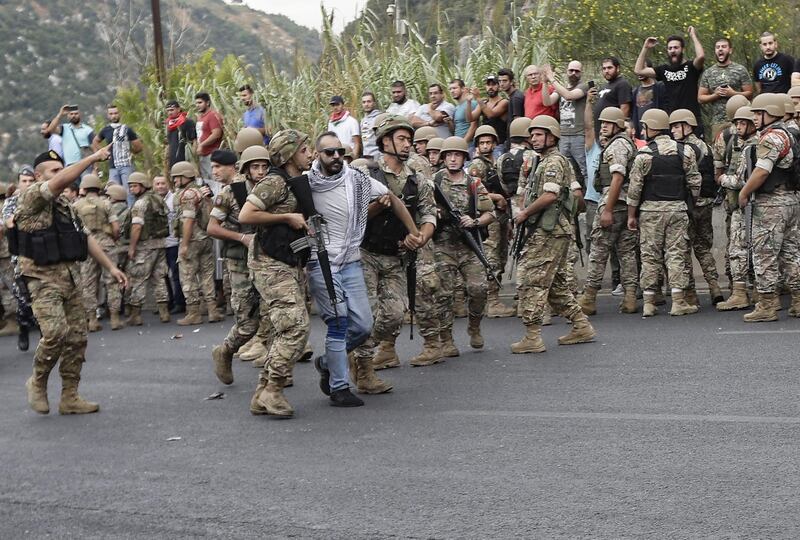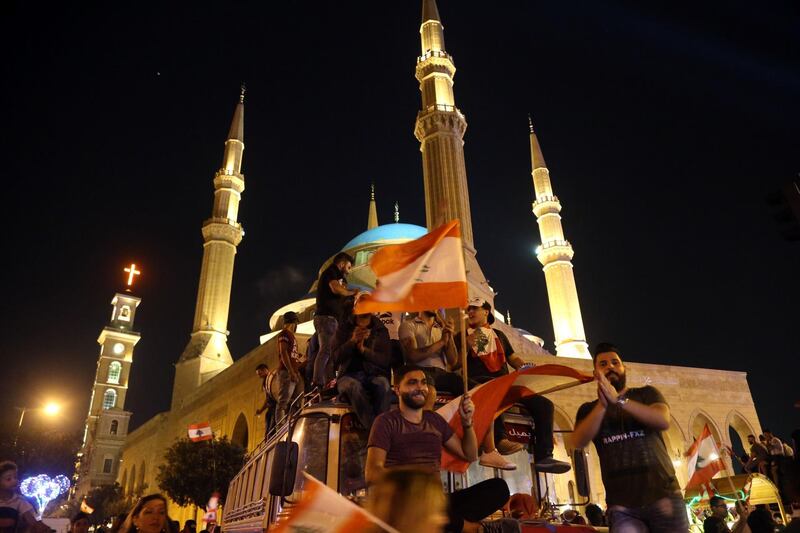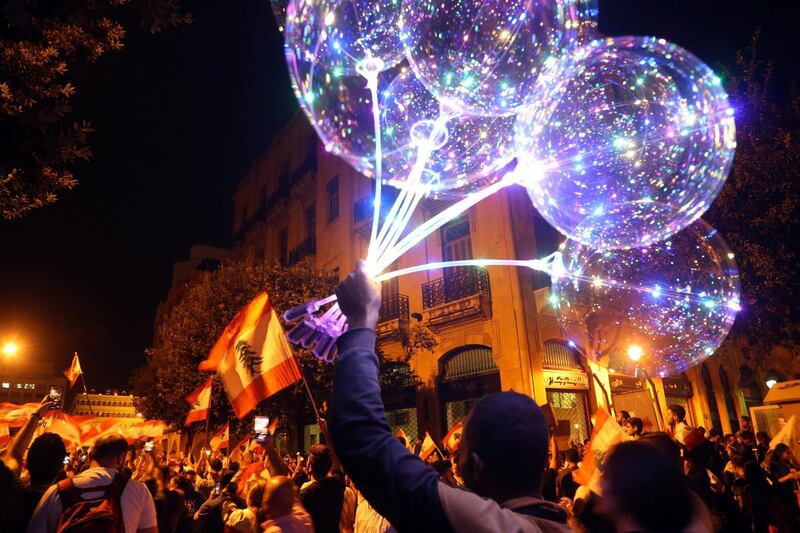When the Lebanese people took to the streets of Beirut last week to protest against government corruption and austerity measures, bodyguards of one minister confronted them with rifles. What followed was an act of defiance on the part of a protester in what has been dubbed the ”October Revolution”. An unarmed woman, surrounded by gunmen, shot out a foot and karate-kicked one of them, catching him by surprise as he flailed and his weapon dangled redundant. This dramatic scene was caught on video, memed on social media and morphed into a symbol of the revolt.
There is little doubt that one of the largest mobilisations in Lebanon’s history is an impassioned response to the country's long-standing social and economic woes. This is not the first time that people have voted with their feet. It happened in 2005 against the Syrian occupation of their territory and 10 years later, against the government’s failure to find solutions to a waste crisis. Today though, Lebanese citizens are out to reclaim their dignity.
However, even as the masses have mostly carried out these demonstrations with dignity, the same cannot be said about the political class that has run the country since Lebanon's civil war came to an end nearly 30 years ago. In fact, even as the 1989 Taef agreement forced elites to work together for the sake of keeping this very diverse country together, they also persevered to pit their people against one another. They have used sectarian scare tactics and clientelism to convince their respective followers that only they can fix Lebanon's problems.
A chain of events in recent times, however, has served to expose those exerting the levers of power. First came the government's austerity measures to curb public spending, the effects of which became even more severe due to shortages of US dollars and fuel. Then came the worst wildfires the country has seen in decades, which spiralled out of control, partly due to government mismanagement of the resources it originally had at its disposal to quell such disasters. The proverbial last straw was the government's decision to roll out a series of taxes, including one on WhatsApp – one of the few free communication services used by the country's most vulnerable.
While some have derisively called the protests the “WhatsApp Revolution”, the truth is that this uprising has been a long time coming. Lebanon has during this period wrestled with a number of problems. The wealth gap matches those of the world’s most stricken nations, according to the World Inequality Database, with the country’s richest 1 per cent pulling in 25 per cent of national income between 2005 and 2014. This, while the economy has declined during the past five years and unemployment for people aged 25 and under at 37 per cent.
Prime minister Saad Hariri cancelled planned taxes and sought a 72-hour window during which to announce a way forward. But his assurances seem a case of too little, too late. Millions of Lebanese people have suffered during the past three decades, with the fortunate few having been forced to move abroad. Some will never return and neither will their offspring. To many, the question was: what can the government accomplish in 72 hours that it could not for three decades?
Mr Hariri announced his proposals before deadline, including reforms to the cabinet and the docking of salaries paid to ministers and parliamentarians. He promised reforms in the power sector and the return of billions of dollars' worth of public money, pilfered away, to the government coffers. Protesters, though, are not taking Mr Hariri's proposals seriously, with memes about them being circulated on WhatsApp.
The protests themselves, of course, are being taken very seriously by the people. They have been well organised, despite the absence of any visible leaders on the ground. They have also included a broad spectrum of society, with people from all over the country making various demands and possessing differing ideologies out onto the streets, marching in lockstep. Entire families are out, including the young and the old.
But despite this remarkable show of strength through unity, it is hard to predict what the final outcome of these protests will be. People could still turn on each other and the political class could still take advantage of the fissures – as they have done so in the past. There is even speculation that the Lebanese Armed Forces could take over.
In the meantime though, there appears to be no let up from the people. Offices remain closed and roads blocked. Protesters continue to be filled with the rarest of commodities available in Lebanon – hope – and it is important for them to stay united and stay defiant. It is, after all, the only means they have to achieve the end they have wanted for so long: a more responsible and responsive government genuinely devoted to the betterment of the country.
Justin Salhani is a writer and former resident of Beirut

